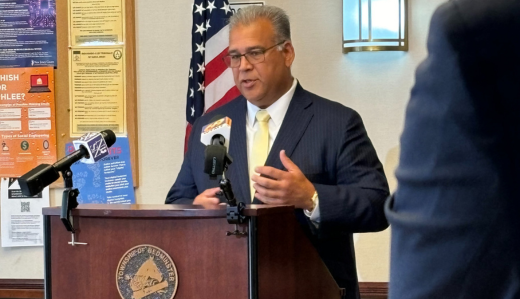TRENTON, NJ — Senator Doug Steinhardt (R-23) sounded the alarm at a Capital Budgeting and Planning Commission meeting Friday, warning that New Jersey’s financial situation is unstable and will burden the next administration with unresolved budget and capital funding problems.
The problems left by the Murphy administration for the next governor, possibly Republican Jack Ciattarelli, will require a serious look under the hood of New Jersey’s crumbling finances.
Steinhardt praised the Office of Public Finance for its debt reporting but sharply criticized the state’s handling of pandemic-era borrowing, noting that $4.3 billion borrowed during COVID-19 was ultimately unnecessary. He emphasized the state’s role in preparing for future capital needs and said, “I don’t want anyone leaving this meeting today thinking this state is in a good place to meet our capital needs in coming years.”
Key Points
- Steinhardt warns of a $3 billion structural deficit and depletion of key funding sources
- New Jersey maintains one of the worst debt ratings in the country, according to Fitch, Moody’s, and S&P
- Future capital projects may require significant new debt issuances due to lack of funding
Structural deficit and depleted reserves pose major challenges
Citing nonpartisan Office of Legislative Services (OLS) analysis, Steinhardt detailed a looming $3 billion structural imbalance caused by spending down the state surplus, exhausting the Debt Defeasance and Reduction Fund, and a $1.2 billion unfunded appropriation for the STAYNJ program. He warned these shortfalls will fall squarely on the shoulders of the next governor.
New Jersey’s outstanding debt per capita remains among the worst nationwide. While the state’s credit rating was recently upgraded, Steinhardt noted it was largely due to federal COVID-19 relief, not fiscal improvements, and Fitch currently ranks New Jersey’s credit rating as the lowest of all states.
Increased spending, looming debt issuances heighten risk
Steinhardt criticized the current administration’s spending growth, noting a $20 billion annual increase since taking office — with only 20% of that tied to pension obligations. The remainder, he argued, represents unsustainable spending trends.
He also warned of significant upcoming debt issuances for transportation and school infrastructure projects, pointing out that no dedicated funding source currently exists for these constitutionally mandated capital needs.
Budget instability may limit future capital investment options
While acknowledging the creation of the Debt Defeasance and Avoidance Fund as a bipartisan achievement, Steinhardt emphasized that New Jersey’s financial foundations remain weak. He concluded, “Make no mistake, this budget’s finances are on shaky ground. There’s a mess being left to the next administration.”

